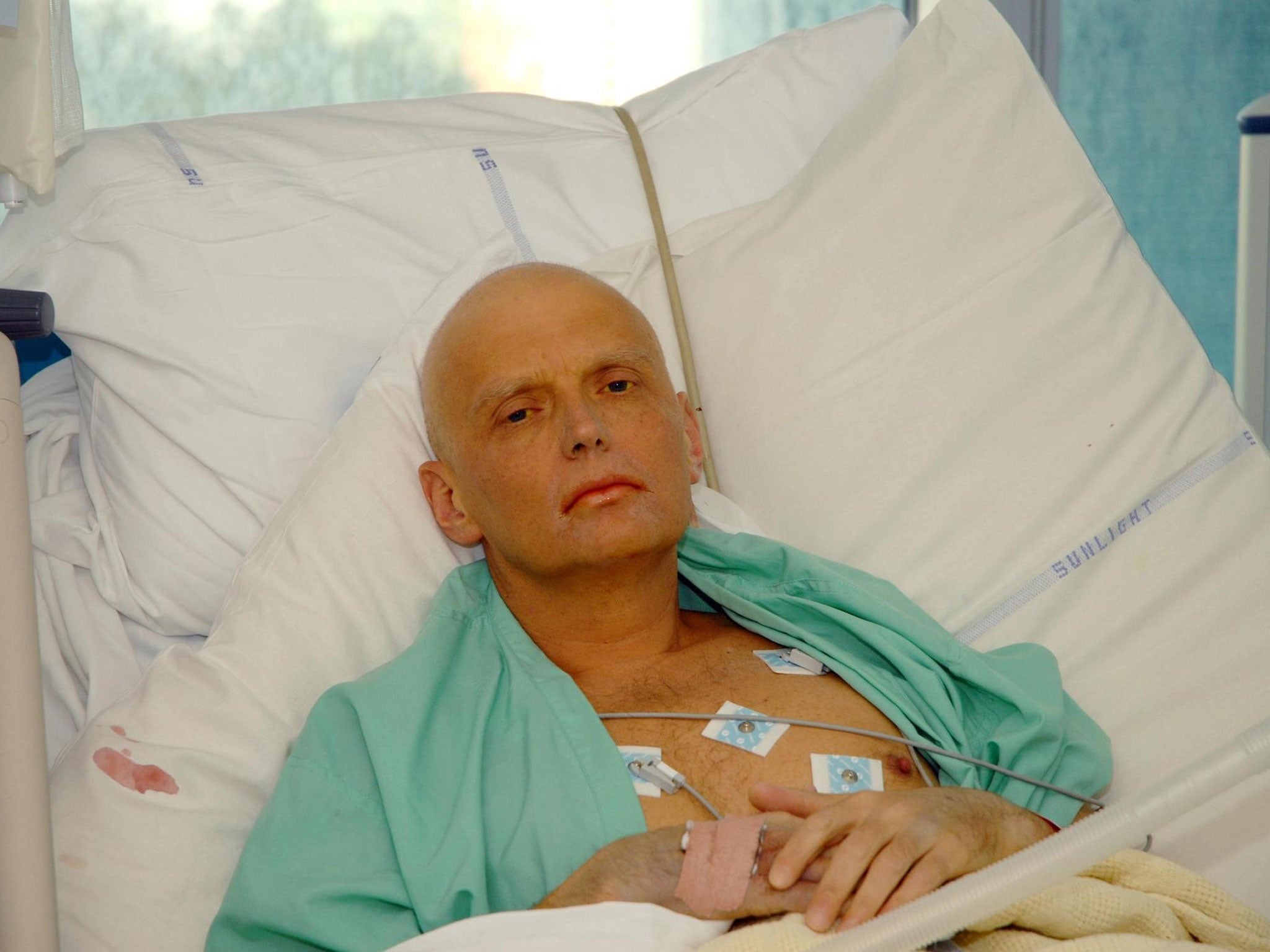Widow of former KGB spy Alexander Litvinenko says coroner 'abandoned search for truth' and calls for public inquiry into his death

Your support helps us to tell the story
From reproductive rights to climate change to Big Tech, The Independent is on the ground when the story is developing. Whether it's investigating the financials of Elon Musk's pro-Trump PAC or producing our latest documentary, 'The A Word', which shines a light on the American women fighting for reproductive rights, we know how important it is to parse out the facts from the messaging.
At such a critical moment in US history, we need reporters on the ground. Your donation allows us to keep sending journalists to speak to both sides of the story.
The Independent is trusted by Americans across the entire political spectrum. And unlike many other quality news outlets, we choose not to lock Americans out of our reporting and analysis with paywalls. We believe quality journalism should be available to everyone, paid for by those who can afford it.
Your support makes all the difference.The widow of former KGB spy Alexander Litvinenko has called for the inquest into her late husband's death to be abandoned and for a public inquiry to be held in its place.
Marina Litvinenko accused Sir Robert Owen, the coroner presiding over her husband's inquest, of abandoning "his search for the truth about Russian state responsibility for her husband's death".
The widow's fierce criticism comes after Sir Robert revealed he could not consider public evidence linked to an alleged involvement in his death from the Russian government, citing national security.
Mrs Livinenko said she was "utterly dismayed" by the ruling and suggested it was the result of a deal between governments in London and Moscow.
Mrs Litvinenko's solicitors said in a statement: "This is a very sad day for Mrs Litvinenko, a tragedy for British justice which has until now been respected around the world, and it is a frightening precedent for all of those, around the world, who have been trying so hard to expose the crimes committed by conspiracy of organised criminals that operate from the Kremlin.
"Mrs Litvinenko is utterly dismayed by the coroner's decision to abandon his search for the truth about Russian state responsibility for her husband's death."
The statement continued: "to protect those responsible for ordering the murder of a British citizen on the streets of London, and to allow the Russian government to shield behind a claim for secrecy made by William Hague with the backing of the Prime Minister David Cameron".
Adding: "All those concerned with exposing the truth will be shocked and saddened that a political deal has been done between the two governments to prevent the truth from ever seeing the light of day."
Alexander Litvinenko, 43, was poisoned with radioactive polonium-210 while drinking tea at the Millennium Hotel in London's Grosvenor Square in 2006.
The British government agreed that some information should be withheld from the inquest, in the name of national security.
The Litvinenko family believe Alexander was working for MI6 at the time of his death and was killed by the Kremlin.
In the statement from Mrs Litvinenko's solicitors they added that they would now be leaning on the coroner to launch a full public inquiry as this is "the only way now that the truth can be exposed".
While ruling, Sir Robert said: "It is my present view that I should hear submissions as to whether I should invite the Secretary of State (the Home Secretary) on behalf of Government to consider whether the power to hold an inquiry should be exercised in this case."
Sir Robert added that the issues of preventability and Russian involvement are of "central importance" to his investigation.
He added that any exclusion of key evidence in relation to Kremlin involvement would cause him "grave concern".
The coroner continued: "Were an inquiry to be held into the circumstances of Mr Litvinenko's death, the relevant material could be taken into account."
Alex Goldfarb, a friend of the Litvinenko family, said the coroner's decision was "deeply dismaying", and that it was "upsetting" that in his view British government had prioritised its political relationship with Russia over the need to hold a public inquest.
He said: "It appears the British government is more concerned about the use of chemical weapons in Syria than radioactive weapons being used on the streets of London."
But Mr Goldfarb added: "On the other hand, it's an admission by the British government that the Russian state is culpable because otherwise they would not have requested immunity. That in itself is a partial victory for Marina."
Join our commenting forum
Join thought-provoking conversations, follow other Independent readers and see their replies
0Comments